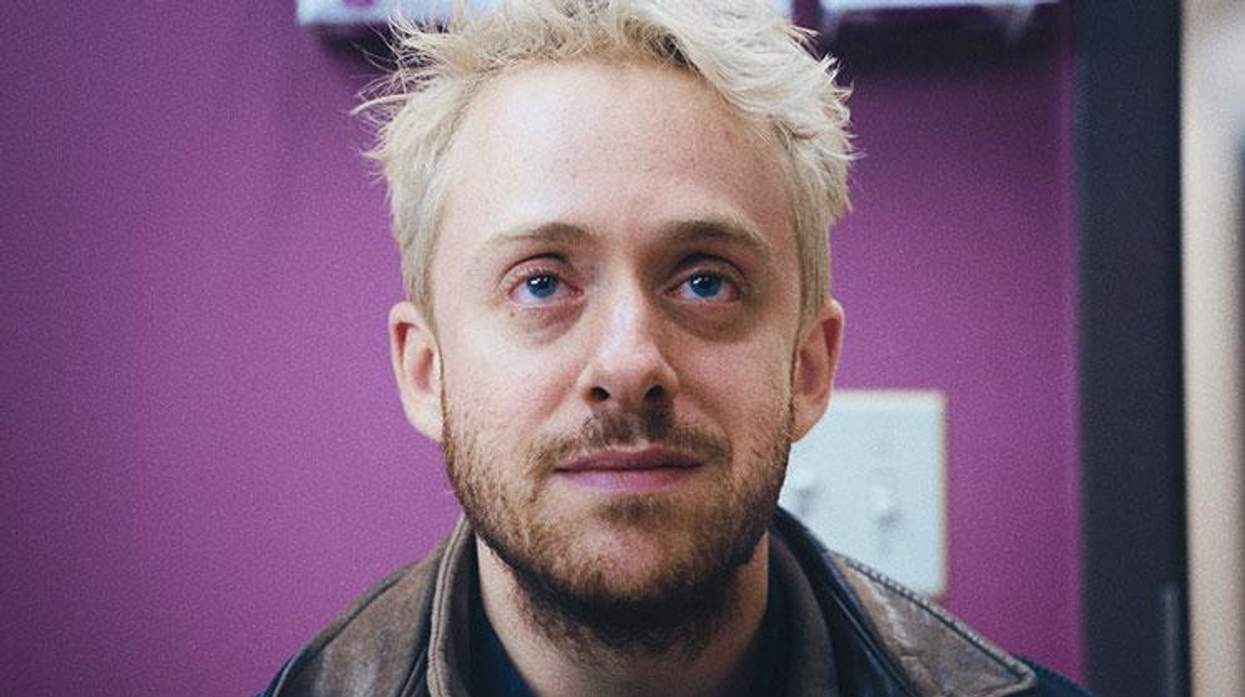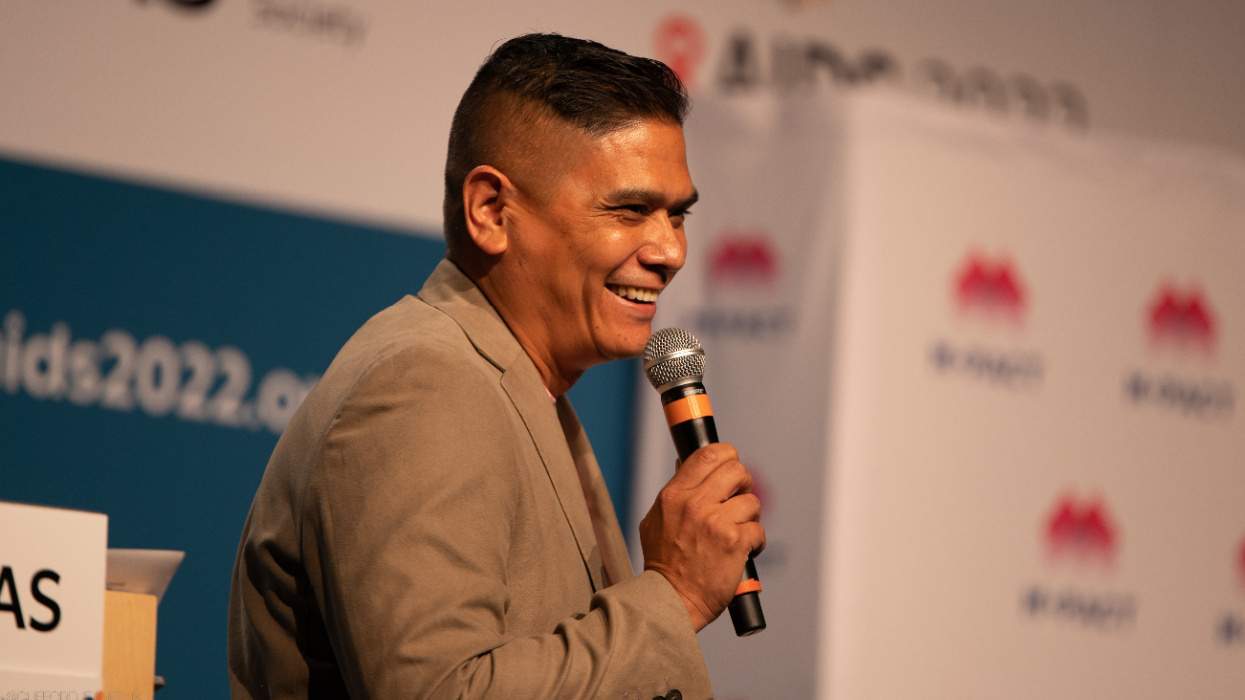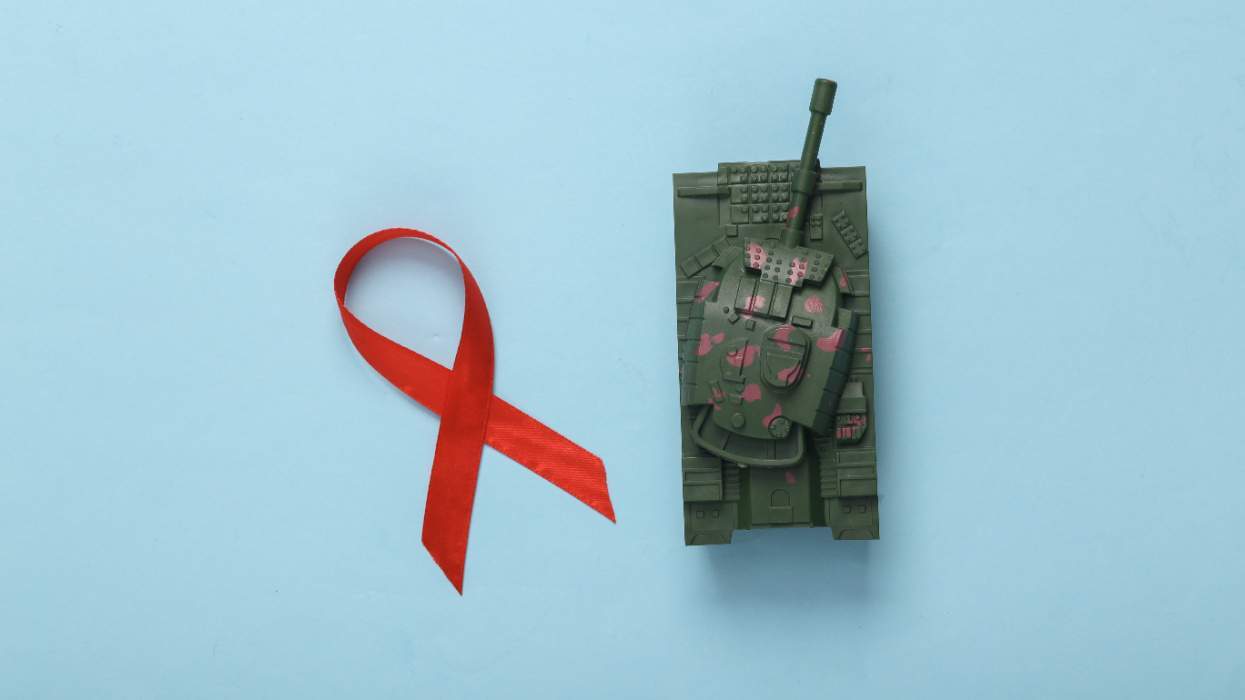We spoke to filmmaker Matthew Puccini about his amazing short film
The Advocate: What inspired this film?
Puccini: The film was inspired by an HIV scare that I had last summer. I was sitting in the extremely small waiting room at the Gay Men's Health Crisis in midtown Manhattan, and was struck by how casual the whole thing was. Making the film was an attempt to portray the screening process in a contemporary way that felt accurate to my own experience.
You've been in a clinic waiting room before. What was that experience like for you?
It's so bizarre -- you're engaged in something that feels both incredibly dramatic and oddly mundane. My mind is racing through all of these crazy hypothetical situations in total silence, surrounded by other people doing the exact same thing. It's awkward and so, so tense.
Why did you make the film?
I wanted to make something that avoided the melodrama I kept seeing in depictions of HIV and AIDS, and instead felt immersive and unassuming and character-based. There was an exciting challenge in trying to place the viewer in the headspace of Jude's character, and in approaching the situation with as much restraint and empathy as possible.
What are you hoping people take away from seeing this film?
Empathy, hopefully. We can all use a little more empathy. The hope is that someone who's never been through an HIV test can watch this film and, afterward, have some inkling of what that situation looks like, or more importantly, feels like, and feel compassion for that.
What's been the reaction to the film on the gay film circuit, versus a more mainstream festival?
The film just screened in a block of HIV and AIDS-themed short films at NewFest, New York's big LGBT film festival, and it was an incredibly humbling experience. I was sharing a stage with several filmmakers and advocates who are HIV-positive, and who have been living that reality with so much grace and humor and bravery, and who've made it their life's work to advocate for their community. So I'm grateful and relieved that the reaction on the LGBT film circuit has been positive. People seem to appreciate the understated and naturalistic approach we took. Hopefully it's clear that we tried to be so, so careful and specific with the story we were telling.
The film never mentions the phrase HIV. Is that intentional?
I didn't purposefully try to avoid using the phrase HIV, but I think the situation is recognizable enough that it didn't need to be said outright. I think having a nurse spelling out information would have distracted from the claustrophobic, limited point-of-view we were going for. I know I always appreciate as an audience member when things aren't completely spelled out for me.
Do you find there is still a stigma against discussing issues like HIV and testing within the gay community?
I don't find there to necessarily be a stigma against discussing HIV, but I do think that there are still plenty of people with preconceptions about what being HIV positive means, and what that lifestyle and reality can look like. I also think there is an equally problematic group of people who think that HIV is no longer an issue. There are so many communities in the world, and within the US, that don't have nearly enough access to information, treatment and support.
Smoking plays a role in the story. Why did you want to include cigarettes, and what does it mean for these characters in the waiting room?
Such an interesting question -- I never intended smoking to be a particularly large role in the film. For me, it's a visual way of showing how nervous Max's character is. You see him relapse into this bad habit in order to stay calm. And at the end, when Max passes the cigarettes off, we get a sense of how cyclical this ritual is
In the ending scene, when Max's character gets his test results, the audience hears nothing. It's emotional and visual. Why did you make this artistic decision?
The hope is that it really forces you to focus on the performance, the character, and the raw emotion of it. I wanted to challenge the audience's preoccupation with the diagnosis, and instead present the humanity of the situation; sort of saying that regardless of the result, this is a real person, with a real life and family and stakes, who has found themselves here.
Can you elaborate on your direction for the actor at the time?
It was 2 a.m. on our last day of shooting, and Max and I were both exhausted. By this point, we'd been talking for several weeks, and I felt like we were on the same page about what the last shot needed to do. All I did was send him out into the freezing parking lot with my iPhone, and I told him to listen to Patty Griffin's song When It Don't Come Easy. He came back in, sat down, looked at me, nodded, and then proceeded to deliver five takes, all of which were completely different and perfect. I think we used the third one.
What was going through your head, as well as what you imagine was going through the character's head, when he found out his results?
For me, every time I get tested, no matter how sure I am of what the results will be, there's a moment of tension where I'm examining my life, and how it would change, and how I would navigate that. For Jude, in the film, I think he's thinking about his family, and his daughter, and how the results will affect the life he's built for himself. He's struggling with these deeply embedded feelings of shame and this irrational but very real fear of winding up alone.
How would you describe the meaning of the title?
I think the title is alluding to the shame that the main character feels at some of the choices he's made that have landed him in this situation. He's extremely hard on himself, I think. Some people have taken the "He" of the title to be someone other than Max's character, which I find really interesting as well.
What is next for you? What stories are you most looking forward to telling?
I just co-directed a short documentary, and Max and I are writing a feature film together that I'm really excited about. The hope is to just keep making work that feels honest and is pushing the boundaries of my comfort zone, and hopefully is doing the same for others.
You can also watch The Mess He Made on Vimeo and find out more about Matthew here.















Charlie Kirk DID say stoning gay people was the 'perfect law' — and these other heinous quotes
These are some of his worst comments about LGBTQ+ people made by Charlie Kirk.